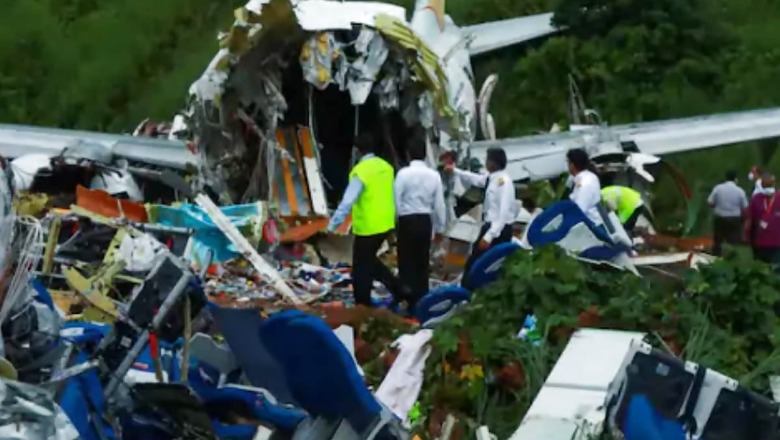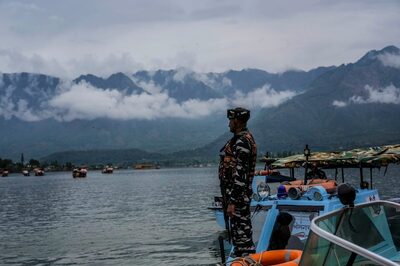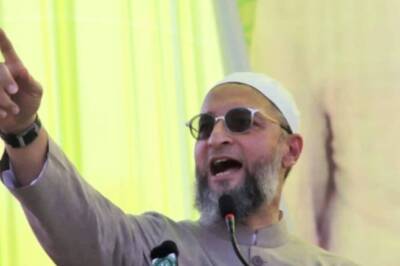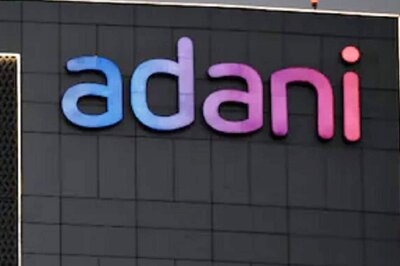
views
This piece is neither against any lobby nor against any organisation. It is against the laissez faire attitude of the powers that be -- the policy makers -- when it comes to selecting and positioning heads of professional aviation-related organisations.
There, a we-can-manage-better-than-anyone-else feeling overrides the dictates of expertise, knowledge and wisdom that accrues from having served as a foot slogger in the field and rising to management level in a profession where life and death matters.
The recent statement of the DGCA after the Air India Express crash, in a way castigating the pilots even before the decoding of the black boxes had begun, is a pointer to the rot in the selection system. A real life example that shows how babugiri rules the roost would drive home the point.
The Public Enterprise Selection Board (PESB) selects heads of professional government and semi government undertakings; that they have an onerous task would be stating the obvious.
In 2011-12, the PESB advertised for the post of the CMD of Pawan Hans Ltd – an out and out helicopter aviation company. Joint Secretary-level officers, and of their paygrade equivalent, could apply for the post. Accordingly, two serving Air Vice Marshals of the IAF sent in their applications. One of the AVMs was Assistant Chief of the Air Staff looking after operations of the transport and helicopter fleets of the IAF (and had been a Pawan Hans Board Member for two-and-half years until recently) while the other was the maintenance head of the same two fleets.
So, the two officers were deeply involved in the management of flying and maintenance activity of around 250 helicopters and about 175 transport aircraft. Pawan Hans, at that time, had 45 helicopters.
With the date of the interview approaching and no word from the PESB, one of the AVMs called up to check. He was told that the two had not been short-listed for the interview. On being asked why, despite the credentials they held, the PESB officer said that “as per rules, if there are more than 15 candidates then the time spent in the Joint Secretary pay-grade determines the short-listing”. And since service officers take time to reach the Joint Secretary level, they were nowhere in contention.
Well, rules are rules. And professional acumen not being a box to be considered by the top selection agency of the government, among the short-listed candidates were those from the Container Corporation of India, Scooters India Ltd (that made the Vijay Super scooter some two decades back) -- and hold your breath -- Indian Railways Catering and Tourism Corporation!
The Vice Chief of Air Staff was told about the sheer absurdity of the short listing process and the non-recognition of professional expertise and requested to intervene -- remember, this was just shortlisting for the interview.
He did so by speaking to the secretary of PESB and emphasised the point that the topmost managers of the IAF helicopter fleet should at least be called for the interview, but with no luck. To cut a long story short, an RTI was put in by one of the AVMs asking for the criteria for the shortlisting and the weightage obtained by each candidate. This was not agreed to, as by then, the selection process was not over and as per RTI rules the information could be denied.
An appeal to the appellate authority also drew the same result. Meanwhile, some politics was reportedly at play since the incumbent officiating CMD, a bureaucrat, continued in the chair for a few more years!
These are games that organisations play. Incidentally, Pawan Hans was set up by a nucleus of IAF helicopter pilots and its first CMD was from the IAF – possibly, thereafter the expertise required to run the helicopter company went up, and beyond the capability of thoroughbred helicopter professionals, with generalists being found more adept.
Make no mistake, the author doesn’t doubt the capabilities of professionals from other fields running aviation companies, but excluding aviation experts from having a go in the selection process is beyond reason.
If this continues, and professionalism is not given its due, we would have the public spectacle of the DGCA head (after the recent crash) using terms like ‘one side of the runway’ and ‘the other side of the runway’ to convey an action of an aircraft overshooting and making an approach for the reciprocal runway!
Well, good luck to all of us who travel by air – unless the Ministry of Civil Aviation takes note of the shenanigans that ‘rules’ and ‘interests’ play in this profession that desperately needs top rate professionals.
The recent letter from the Indian Commercial Pilots Association addressed to the minister, and doing the rounds of social media, refers to the heads of the Federal Aviation Authority of the USA and brings out that “… in its history, of all 19 Administrators or Heads of the organization, 14 were highly experienced pilots and the other 5 who were not pilots still had significant aviation experience”.
What is India’s experience? Just Google, and be ready for a surprise. The post of the DGCA is a revolving chair of non professionals, barring the odd honourable exception.
Did someone say that the government has started lateral placements of professionals in its ranks? Well, aviation bodies, not just the DGCA, need domain experts, starting from the people who are at their helm -- those who lay down policies that are the arbiters of safe aviation activity.


















Comments
0 comment